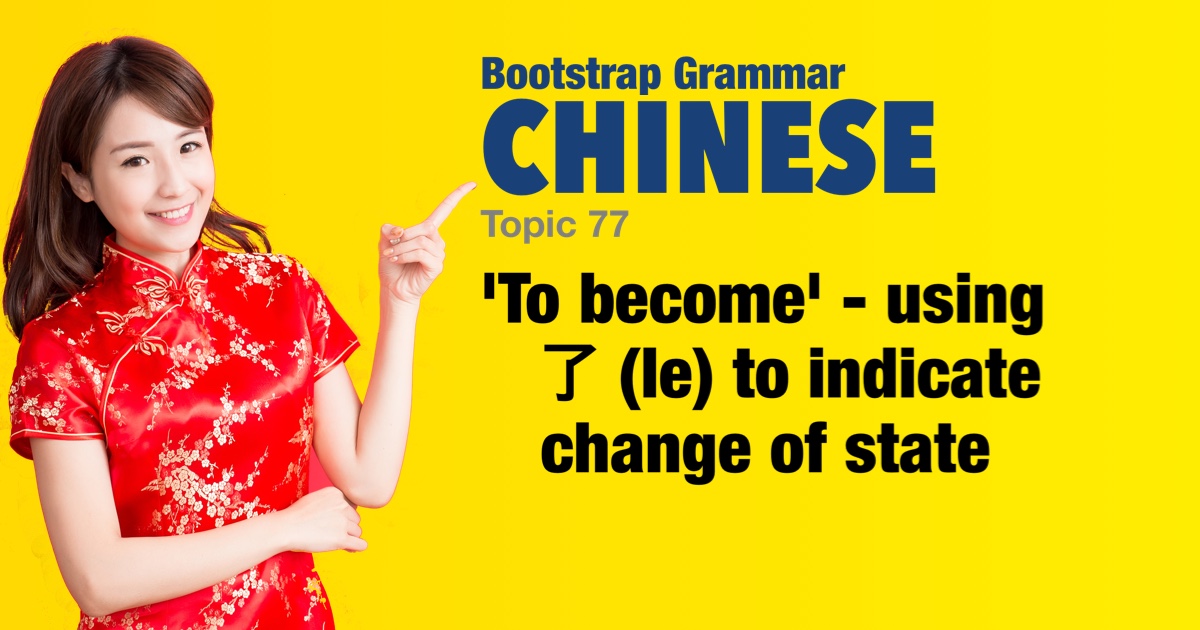Chinese grammar - 'To become' - using 了 (le) to indicate change of state |
|||
|
|||
The particle 了 (le) in Chinese is used to indicate a change of state. This usage signals that something has undergone a transformation or that a new situation has arisen. It is commonly used with 变 (biàn), which means 'to become' or 'to change'. |
| Examples: | |
|
孩子长大了。
háizi zhǎngdà le. The child has grown up.
|
|
|
孩子大了。
háizi dà le. The child has grown/has become big. |
|
|
他高了很多。
tā gāo le hěnduō. He has gotten a lot taller. |
|
|
我的手机坏了。
wǒ de shǒujī huài le. My phone is broken (now)./My phone has broken. |
|
|
他哭了。
tā kū le. He is crying (now)./He started crying. |
|
|
你醒了。
nǐ xǐng le. You are awake (now)./You have awakened.
|
|
|
我们累了。
wǒmen lèi le. We are tired (now). |
|
|
他生气了。
tā shēngqì le. He is angry (now)./He has gotten angry.
|
|
|
你有钱了。
nǐ yǒu qián le. You have money (now). |
|
|
你瘦了。
nǐ shòu le. You have lost weight.
|
|
|
他老了。
tā lǎo le. He has aged. |
|
|
花开了。
huā kāi le. The flowers have bloomed. |
|
|
天气变好了。
tiānqì biàn hǎo le. The weather has turned nice.
|
|
|
天气变冷了。
tiānqì biàn lěng le. The weather has become cold. |
|
|
天气变暖和了。
tiānqì biàn nuǎnhuo le. The weather has warmed up.
|
|
|
她变胖了。
tā biàn pàng le. She has become fat.
|
|
 |
|



